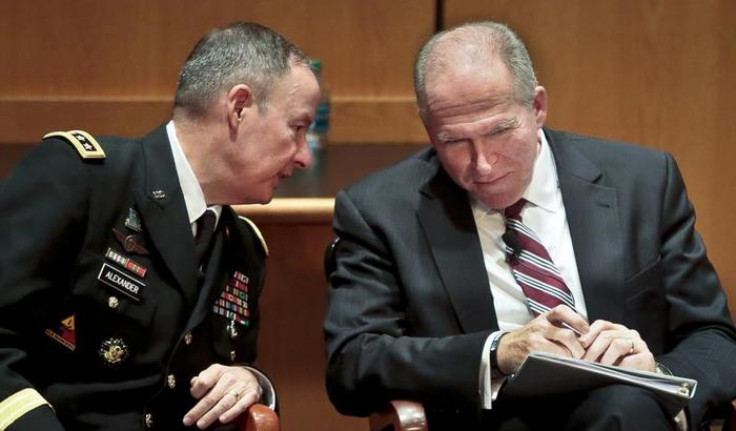NSA FISA Surveillance Programs: Still Unclear What Lawmakers Know About NSA Programs

Government officials defend the National Security Agency’s surveillance programs by pointing out that members of Congress have been briefed on them. But repeatedly, those assurances are followed by questions about whether all members of Congress are actually informed about the NSA’s activities.
As evidence of the effective oversight of the NSA’s bulk electronic collection programs, the director of national intelligence declassified last week a May 2012 white paper on the NSA’s electronic surveillance activities. Intended as a brief for members of Congress on the programs, the paper described the agency’s collection of communications such as emails under section 702 of the 2008 FISA Amendments Act. The paper also described one major privacy violation case that the government had dealt with the previous year. The paper was supposed to be made available to all members, via the House and Senate intelligence committees, to give lawmakers an overview of the NSA’s activities -- and their importance to national security -- ahead of a vote to reauthorize section 702.
But rather than allow House members to view the document independently, the House Permanent Select Intelligence Committee instead decided to brief members on the contents of the white paper. If a member missed the briefing, they could request a private briefing from the intelligence committee. It is unclear if more than a briefing was held and whether any members requested a private meeting.
A redacted version of the white paper was released Wednesday along with several other documents detailing how the NSA violated both the provisions of section 702 and the Fourth Amendment privacy protections, by collecting tens of thousands of emails and other electronic communications of innocent Americans. As one government official told reporters on a conference call Wednesday, the documents were meant to show the “strong nature of the oversight of this program.” Though the Foreign Intelligence Surveillance Court and the two intelligence committees in the House and Senate learned about the incident, it is unclear how many members of the House of Representatives attended the briefings and learned about the serious violations before voting to reauthorize section 702.
Whether or not members of Congress had access to this information is an important part of the debate over these programs. For example, national security law expert Benjamin Wittes of the Brookings Institute, who runs a blog on legal and national security issues, wrote Thursday that the paper allowed “any member of Congress who wanted to be informed a succinct but accurate summary of the administration’s challenging recent interactions with the [Foreign Intelligence Surveillance Court],” a reference to the 2011 viotions case, and that “any member of Congress who did not know what was going on with respect to Section 702 surveillance did not choose to know.”
A spokesman for the Senate intelligence committee confirmed that the committee made the white paper available to any senator who wanted to read it, by appointment, and informed staff were made available to answer any questions about the paper. It’s unclear how many members took advantage of that opportunity.
This is not the first time the House Intelligence Committee, under the leadership of Rep. Mike Rogers, R-Mich., decided to hold briefings for members rather than allow direct access to the documents from the intelligence community. In 2011, ahead of Congress’ vote to reauthorize controversial provisions of the Patriot Act, including section 215 under which the bulk phone records collection is authorized, the administration again made a white paper available to each member of Congress through the two committees detailing the program. Rather than make the paper available, House intelligence committee spokeswoman Susan Phalen said in a statement that “Prior to voting on the PATRIOT Act reauthorization and the FAA reauthorization, Chairman Rogers hosted classified briefings to which all Members were invited to have their questions about these authorities answered.”
"Because the letter by itself did not fully explain the programs, the Committee offered classified briefings, open to all Members of Congress, that not only covered all of the material in the letter but also provided much more detail in an interactive format with briefers available to fully answer any Members’ questions,” Phalen said in a statement last week on the committee’s decision to hold briefings on the section 215 program rather than make the document available to individual members. “The discussion of the letter not being distributed is a side issue intended to give the false impression that Congress was denied information. That is not the case."
More broadly, many members of Congress have said that they have not been privy to enough information about the NSA's activities. After the cache of documents were released last week revealing a level of detail about the NSA's activities that most senators were not previously privy to, Sen. Bob Corker, R-Tenn., sent a letter to President Obama asking that NSA Director Keith Alexander brief senators on “all collections and activities conducted pursuant to statutory and other authorities.”
Corker, the top Republican on the Senate Foreign Relations Committee, said Sunday that he did not believe most members of Congress know what the NSA is doing and not doing in surveilling Americans. "The American people want to know that those of us who are elected...understand fully what's happening here," Corker said on Fox News Sunday. "I don't think we do. I would imagine there are even members of the Intelligence Committee themselves that don't fully understand the gamut of things that are taking place."
© Copyright IBTimes 2024. All rights reserved.












